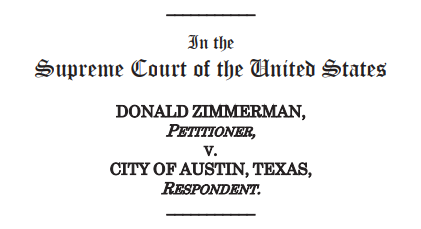This case asks whether, in the absence of evidence of actual, specific quid pro quo corruption, a public perception about “corruption,” “influence,” “access,” or large campaign contributions alone is sufficient to limit highly-protected rights of speech and association.
The circuit courts which have reviewed this question have split in a variety of ways, but the clearest conflict is over the evidence required to substantiate a government’s claim of an interest in preventing an “appearance of corruption.” After Citizens United and McCutcheon, the Second, Sixth and D.C. Circuits require specific evidence of quid pro quo corruption. The Fifth Circuit (in this case) and the Ninth Circuit do not require such specificity.
Stated slightly differently, the conflict is whether a particular circuit believes that the evidentiary standard is controlled by recent cases such as Citizens United and McCutcheon, or older ones such as Shrink Missouri Government PAC and McConnell. These two lines of cases came to different conclusions about what constitutes evidence of corruption and an “appearance of corruption.” The decision below, which did not require any evidence of quid pro quo corruption and looked solely to evidence of popular opinion, is at one edge of the “no evidence required” position.
The issue of corruption and political spending is particularly heated today, and that heat has spilled over into governmental decisions on campaign contribution limits and court challenges to those decisions. The question of the evidentiary requirements to support or reject contribution limits, already presented several times in the past, is likely to recur.
The jurisprudential danger in this case and in Lair v. Mangan, No. 18-149, is the possibility that some lower courts will use the “low” evidentiary bars of older cases to eclipse the narrower quid pro quo evidentiary bar established in Buckley and recently reinforced in Citizens United and McCutcheon. The Court should grant the Petition to help legislatures establish, and the lower courts resolve disputes over, campaign contribution limits without unnecessary chill to protected speech, association and petition.
Read Full Brief














